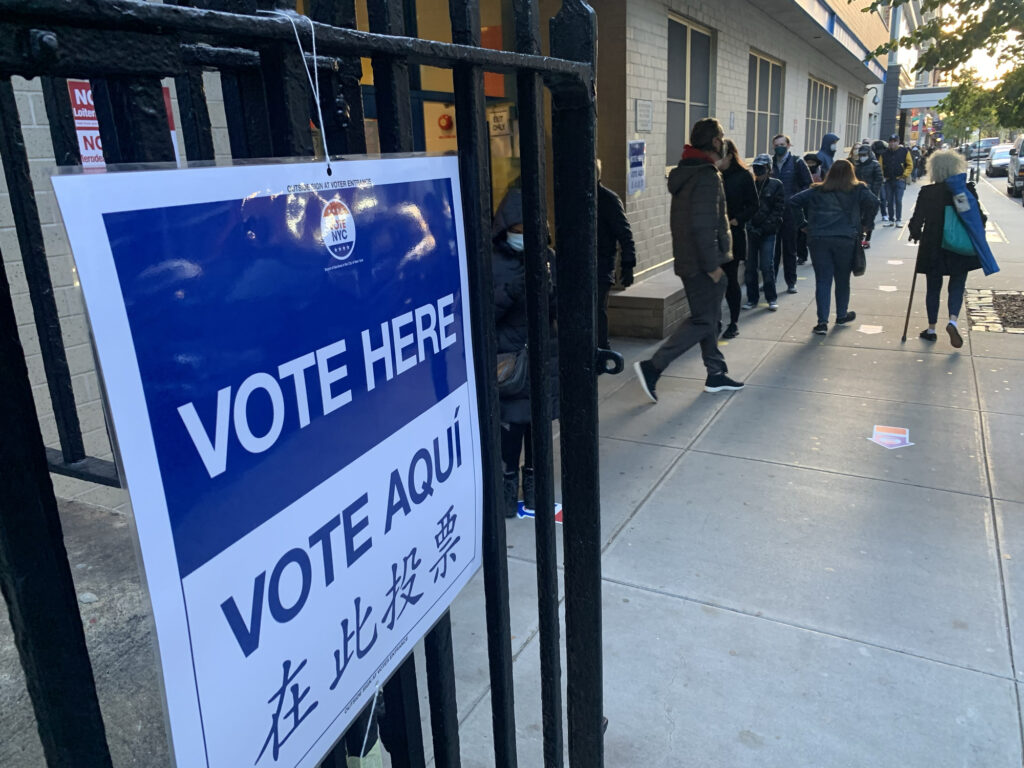A Roadmap for Effective Battleground Messaging This Cycle
A pair of 2021 electoral upsets may point the way to potential messaging and branding answers for candidates in battleground races this year.

Following the election in November, Third Way and Impact Research (formerly ALG Polling) conducted focus groups of Virginia Biden voters who defected to Gov. Glenn Youngkin or “actively considered it.” Their findings provide a good top-line glimpse at messaging challenges facing battleground campaigns on both sides of the aisle this cycle, as well as some potential solutions.
For moderate Democrats, the national brand is flagging. President Biden was largely elected to steady the ship, albeit without a substantial policy mandate. All the same, many expected a bit more than what they’re getting. Those surveyed also pointed to acute economic challenges that Democrats are under-emphasizing in favor of social issues that feel more remote to the moment. And there’s a general feeling that the party hasn’t yet effectively replaced the, we’re-not-Trump message of 2020, which doesn’t land as well if he’s not on the ballot.
For more centrist Republicans, the challenge is one of threading a needle. They must keep supporters of the former president in the fold while not swearing absolute fealty. See Gov. Kemp’s primary challenge in Georgia following his refusal to de-certify 2020 election results as the cautionary tale.
So where to from here? Well, a pair of 2021 electoral upsets point the way to potential messaging and branding answers.
The first is Atlanta Mayor Andre Dickens. Then-Councilman Dickens entered his race late. He grew citywide name ID in a hurry amid a crowded field that featured, among others, former two-term Mayor Kasim Reed.
Dickens, whose campaign I supported, pulled it off by casting himself as a fresh faced progressive with energy and big ideas. He had clear, tangible solutions on the city’s rising violent crime rates as well as other issues like jobs, transportation, and housing, which felt responsive to the most immediate pain points of the electorate.
Aided by the (officially) nonpartisan nature of the race, he distanced himself from Washington. He offered a contrast against his opponents by pointing to things like their past ethical concerns or a lack of a demonstrable voting record – arguments that seemed germane, fair, and had nothing to do with political figures situated outside of city limits.
Slowly but surely he gained momentum. He went from an outsider to receiving 63 percent of the vote in a runoff on Nov. 30.
The second example is the aforementioned Youngkin campaign. The Virginia Republican also had a platform that rested on tangible solutions, such as eliminating the state’s grocery tax and providing more parental control over education. Moreover, he branded himself a political newcomer with perhaps just enough distance from President Trump to make moderates happy.
It should be mentioned too, that in Terry McAuliffe, he had the perfect foil. The former governor was inextricably linked with Washington. His platform was opaque. The biggest message point that resounded was his likening of Youngkin to Trump, which did not stick.
Taken together you can’t help but notice how much these newly successful candidates are a throwback to pre-2016.
In broad strokes, as mentioned elsewhere, Youngkin profiles more like Mitt Romney than Donald Trump. And Dickens, the new mayor of Atlanta, used the same playbook long employed by Democrats from the Kennedys through to Barack Obama.
And this makes sense. It’s almost as if centrist voters are so fatigued with the last six years that they’re reverting to type.
Disillusioned with Biden and the steady-at-the-wheel model, Democrats are looking to fall in love again. Just as, perhaps exhausted by the volatility of the Trump era, some Republicans are looking to fall in line again behind what they know and understand.
This realization brings into focus a rough outline of the ideal 2022 candidate campaigning to a moderate audience: Easily grasped ideas that respond to the unique challenges of the day are critical. Find a concern that has been heightened in the last two years and propose a response that makes sense to voters. At the same time, lean more heavily into your qualifications and vision rather than your opponent’s failings.
And if you’re seeking an archetype, look for candidate profiles from 2012, if not earlier.
Tony Lucadamo is the President of Clay House Public, a Democratic campaign consulting firm based in Metro Atlanta.
